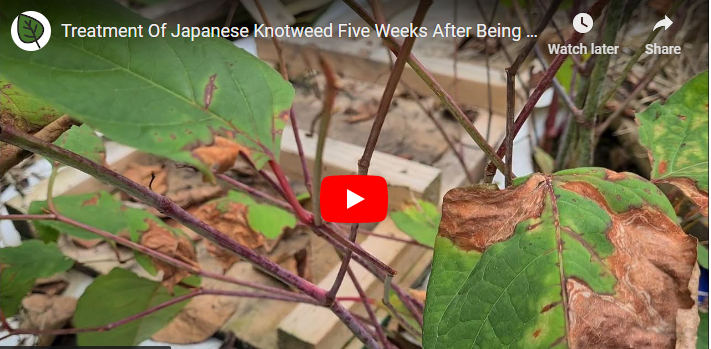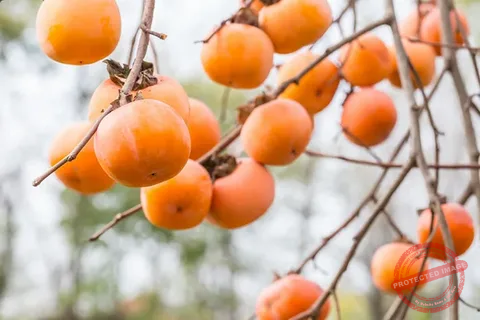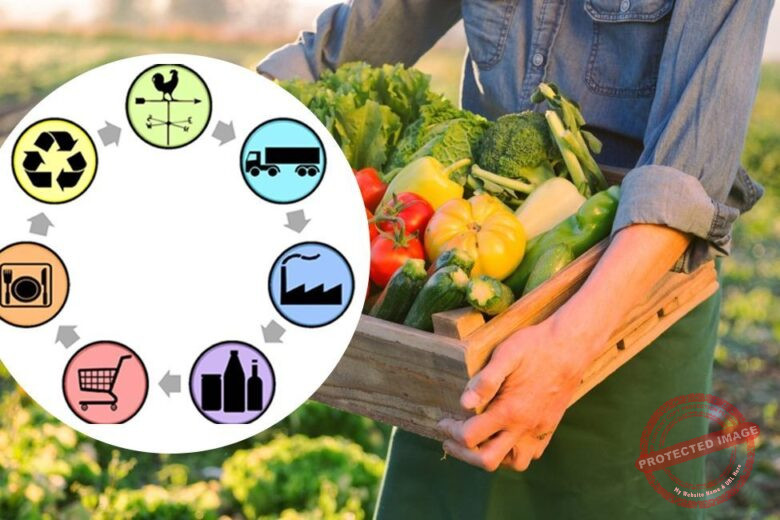Watermelons are a delightful summer fruit known for their juicy and refreshing taste. Growing watermelons requires proper care, including the use of fertilizers to ensure healthy plant growth and abundant fruit production.
Some of the best fertilizers for watermelon include Compost, Fish Emulsion, Bone Meal, Seaweed Extract, and Blood Meal.
In this article, we will explore the 15 best fertilizers for watermelon, both organic and inorganic, and provide you with valuable tips on fertilizing your watermelon plants.
15 Best Fertilizers for Watermelon: Organic & Inorganic
Organic fertilizers offer a natural and sustainable approach to nourishing your watermelon plants. They provide slow-release nutrients and improve soil structure, resulting in long-term benefits for your garden. Here are some of the best organic fertilizers for watermelon:
Read Also: 12 Liquid Fertilizers for Maize: Boost Your Crop’s Growth!
Benefits of Organic Fertilizers
Using organic fertilizers offers several advantages:
Environmentally Friendly:
Organic fertilizers are derived from natural sources, reducing the risk of harmful chemical runoff into waterways.
Read Also: 15 Best Fertilizers for Tobacco [Organic & Inorganic]
Improves Soil Health:
Organic fertilizers enhance soil fertility, moisture retention, and microbial activity, promoting overall soil health.
Safe for Beneficial Organisms: Organic fertilizers support beneficial soil organisms such as earthworms, which aid in nutrient cycling and soil aeration.
Read Also: Fertilizer Schedule for Tomatoes: Maximizing Your Tomato Harvest
Best Organic Fertilizers for Watermelon
1. Compost:
Rich in organic matter and nutrients, compost is a fantastic all-around fertilizer for watermelons. It improves soil structure and fertility while gradually releasing nutrients.
Read Also: Fertilizer Schedule for Lawns: A Comprehensive Guide to Achieving a Lush, Green Yard
2. Manure:
Well-aged animal manure, such as cow or chicken manure, provides a balanced mix of nutrients for watermelon plants. Apply it before planting or as a side dressing during the growing season.
Read Also: Fertilizer Schedule for Sugarcane: Maximizing Yield with Proper Nutrient Management
3. Fish Emulsion:
This organic fertilizer is made from fish waste and offers a quick source of nutrients for watermelon plants. It can be applied as a foliar spray or added to the soil.
Read Also: Fertilizer Schedule for Apple Trees: Optimal Nutrition for Bountiful Harvests
4. Seaweed Extract:
Seaweed-based fertilizers contain trace elements, growth hormones, and beneficial microorganisms that stimulate watermelon growth and increase tolerance to stress.
Read Also: 15 Best Fertilizers for Okra Farms [Organic & Inorganic]
5. Bone Meal:
Bone meal is an excellent source of phosphorus, which promotes strong root development in watermelon plants. It is particularly beneficial during the early stages of growth.
6. Blood Meal:
Blood meal is a nitrogen-rich organic fertilizer that boosts vegetative growth in watermelons. It should be applied sparingly to avoid nitrogen burn.
Read Also: 15 Best Fertilizer for Sweet Potatoes Farm [Organic & Inorganic]
7. Cover Crops:
Planting nitrogen-fixing cover crops like clover or hairy vetch helps enrich the soil with nutrients, reducing the need for additional fertilization.
Read Also: 15 Best Fertilizers for Onions Farm [Organic & Inorganic]
Inorganic Fertilizers for Watermelon
Inorganic fertilizers, also known as synthetic or chemical fertilizers, are manufactured products specifically formulated to deliver precise nutrient ratios. They offer quick and targeted nutrient supplementation for watermelon plants. Here are some benefits of using inorganic fertilizers:
Read Also: 15 Best Fertilizer for Cocoa Farm [Organic & Inorganic]
Benefits of Inorganic Fertilizers
Immediate Nutrient Availability:
Inorganic fertilizers provide readily available nutrients, ensuring rapid absorption by watermelon plants.
Read Also: 15 Best Fertilizers for Groundnut [Organic & Inorganic]
Controlled Nutrient Ratios:
The precise NPK ratios in inorganic fertilizers allow gardeners to tailor the nutrient balance to the specific needs of their watermelon plants.
Read Also: 15 Best Fertilizer for Cabbage Organic & Inorganic
Ease of Use:
Inorganic fertilizers are often available in granular or water-soluble forms, making them convenient to apply.
Best Inorganic Fertilizers for Watermelon
8. Complete Watermelon Fertilizer:
Specially formulated blends for watermelons offer balanced nutrition and are easy to apply. Follow the instructions on the package for optimal results.
Read Also: 15 Best Fertilizers for Carrot Organic & Inorganic: Boost Your Carrot Growth!
9. Slow-Release Granular Fertilizers:
These fertilizers release nutrients gradually over an extended period, providing a steady supply of nutrients to watermelon plants.
10. Water-Soluble Fertilizers:
Ideal for quick nutrient uptake, water-soluble fertilizers can be applied through drip irrigation or foliar spray for fast results.
Read Also: 15 Best Fertilizers for Maize: Organic & Inorganic
11. Nitrogen, Phosphorus, and Potassium:
Individual fertilizers containing high concentrations of these essential nutrients can be used to customize nutrient ratios.
Read Also: 15 Best Fertilizers for Beans [Organic & Inorganic]
12. Controlled-Release Fertilizers:
These fertilizers are coated to release nutrients slowly, ensuring a steady supply over an extended period. They reduce the risk of over-fertilization.
How to Apply Fertilizers to Watermelon Plants
Proper application of fertilizers is crucial to maximize their effectiveness and minimize the risk of nutrient imbalances or plant damage. Follow these guidelines when applying fertilizers to your watermelon plants:
Pre-Planting:
Incorporate organic matter like compost or well-rotted manure into the soil before planting to improve nutrient levels and soil structure.
Side Dressing:
Apply granular or water-soluble fertilizers around the base of the plants, keeping them a few inches away from the stem. Gently work the fertilizer into the soil and water thoroughly.
Foliar Feeding:
Use water-soluble fertilizers as foliar sprays, spraying directly on the leaves. This method allows for quick nutrient absorption by the plants.
Avoid Over-Fertilization:
Follow the recommended application rates provided by the fertilizer manufacturer. Over-fertilization can lead to nutrient imbalances, burning of plant roots, or environmental pollution.
Watering:
After applying fertilizers, water the plants deeply to ensure proper nutrient absorption and prevent fertilizer burn.
Importance of Using Fertilizers for Watermelon
Watermelons are heavy feeders that require a steady supply of nutrients throughout their growing season. Fertilizers play a crucial role in providing these essential nutrients, promoting vigorous growth, and maximizing fruit yield.
Without proper fertilization, watermelon plants may suffer from nutrient deficiencies, resulting in stunted growth, weak vines, and small or tasteless fruits.
Factors to Consider When Choosing Fertilizers for Watermelon
Before diving into the best fertilizers for watermelon, it’s important to consider a few factors that will help you make an informed decision:
NPK Ratio:
The NPK ratio represents the proportions of nitrogen (N), phosphorus (P), and potassium (K) in the fertilizer. Watermelons have different nutrient requirements at various stages of growth, so selecting a fertilizer with an appropriate NPK ratio is essential.
Soil Analysis:
Conduct a soil test to determine the pH level and nutrient deficiencies in your soil. This information will guide you in selecting the right fertilizer to address any nutrient imbalances.
Fertilizer Type:
Choose between organic and inorganic fertilizers based on your gardening preferences, environmental considerations, and the specific needs of your watermelon plants.
Tips for Maximizing Fertilizer Effectiveness
To get the most out of your fertilization efforts, consider these tips:
Timing:
Start fertilizing your watermelon plants when they have established a few true leaves. Follow a regular fertilization schedule throughout the growing season.
Mulching:
Apply a layer of organic mulch, such as straw or wood chips, around the base of the plants. Mulching helps conserve soil moisture and prevents nutrient leaching.
Monitor Nutrient Levels:
Regularly inspect your plants for signs of nutrient deficiencies or excesses. Adjust your fertilization practices accordingly to maintain optimal nutrient levels.
Supplement with Micro-Nutrients:
In addition to the primary nutrients (NPK), watermelon plants benefit from micronutrients like iron, magnesium, and zinc. Consider supplementing with micronutrient fertilizers as needed.
Follow Good Cultural Practices:
Proper spacing, adequate sunlight, and appropriate watering practices contribute to the overall health of watermelon plants and their ability to utilize fertilizers effectively.
Common Mistakes to Avoid When Fertilizing Watermelons
To ensure successful fertilization, avoid the following mistakes:
Over-Fertilization:
Applying excessive amounts of fertilizer can harm watermelon plants, leading to nutrient imbalances and environmental pollution.
Under-Fertilization:
Insufficient fertilization can result in poor plant growth, reduced fruit yield, and nutrient deficiencies. Follow the recommended application rates and schedules.
Fertilizing Late in the Season:
Watermelons require proper nutrition throughout their growth cycle. Fertilize early and maintain a consistent schedule to support healthy plant development.
Ignoring Soil pH:
Watermelons thrive in slightly acidic soil (pH 6.0-6.8). Regularly test the soil pH and adjust it if necessary to ensure optimal nutrient uptake.
Neglecting Soil Moisture:
Adequate soil moisture is essential for nutrient absorption by watermelon roots. Maintain proper watering practices to maximize fertilizer effectiveness.
Best Practices for Fertilizing Watermelon
To summarize, here are some best practices for fertilizing watermelon plants:
- Conduct a soil test to identify nutrient deficiencies and determine the pH level.
- Choose the appropriate fertilizer type (organic or inorganic) based on your preferences and soil conditions.
- Select fertilizers with the right NPK ratio for each growth stage of the watermelon plants.
- Apply fertilizers as recommended, following the instructions provided by the manufacturer.
- Monitor plant health and adjust fertilization practices accordingly.
- Practice good cultural practices such as proper spacing, mulching, and adequate watering.
- Avoid common mistakes like over-fertilization and neglecting soil pH and moisture levels.
By following these guidelines, you can provide your watermelon plants with the necessary nutrients for robust growth, vibrant foliage, and delicious fruits.
Can I use regular garden fertilizer for watermelons?
Yes, you can use regular garden fertilizer for watermelons. However, it’s important to ensure that the fertilizer contains the necessary nutrients in the appropriate ratios for watermelon plants. Consider using fertilizers specifically formulated for watermelon or adjust the application rates accordingly.
When should I start fertilizing my watermelon plants?
Start fertilizing your watermelon plants when they have established a few true leaves, typically around 2-3 weeks after transplanting or when seedlings emerge. Follow a regular fertilization schedule throughout the growing season to provide a consistent supply of nutrients.
How often should I fertilize my watermelon plants?
Fertilize your watermelon plants every 2-3 weeks during the growing season. However, always refer to the specific instructions provided by the fertilizer manufacturer for recommended application rates and frequency.
Can I use compost as a fertilizer for watermelons?
Yes, compost is an excellent fertilizer for watermelons. It enriches the soil with organic matter, improves soil structure, and slowly releases essential nutrients. Incorporate compost into the soil before planting and consider side dressing with compost during the growing season.
Are there any natural alternatives to chemical fertilizers for watermelons?
Yes, there are several natural alternatives to chemical fertilizers for watermelons. Organic fertilizers such as compost, manure, fish emulsion, and seaweed extract provide a sustainable and environmentally friendly approach to nourishing watermelon plants.
These organic options offer slow-release nutrients and improve soil health while minimizing the use of synthetic chemicals.
Conclusion
Fertilizing watermelons is a critical aspect of successful cultivation. Whether you choose organic or inorganic fertilizers, the goal remains the same: to provide your watermelon plants with the nutrients they need for optimal growth and bountiful harvests.
Consider the specific requirements of your plants, follow the best practices outlined in this article, and enjoy the satisfaction of growing juicy and flavorful watermelons in your garden.



![How To Buy Farmland For Investment [Farmer’s Guide]](https://agrolearner.com/wp-content/uploads/2024/01/Farmland.jpg)